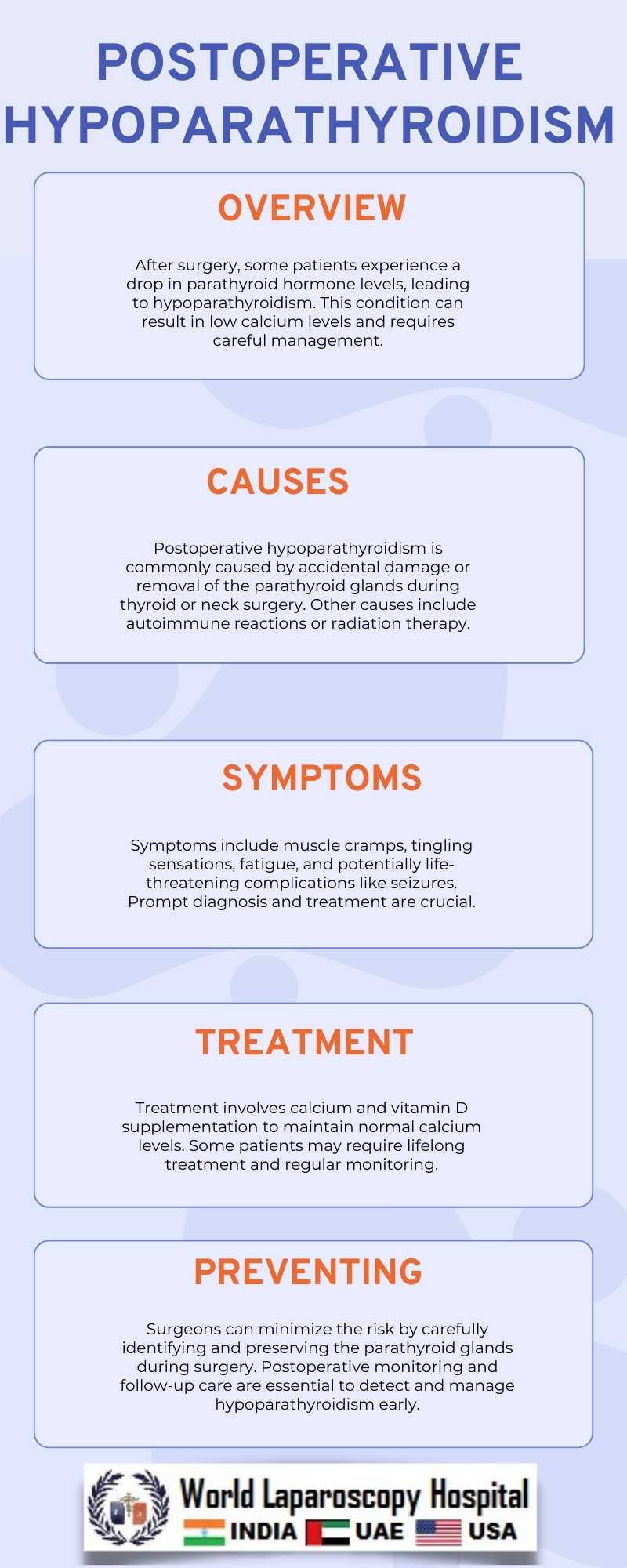
Causes and Risk Factors
The main cause of postoperative hypoparathyroidism is damage to the parathyroid glands during surgery. This damage can occur due to their close proximity to the thyroid gland, making them vulnerable during thyroid surgeries. Factors such as the extent of surgery, surgeon experience, and underlying thyroid or parathyroid conditions can also increase the risk of developing hypoparathyroidism.
Symptoms and Complications
The symptoms of postoperative hypoparathyroidism can vary from mild to severe and may include muscle cramps, tingling or numbness in the extremities (paresthesia), fatigue, and mood changes. In severe cases, hypocalcemia can lead to seizures, cardiac arrhythmias, and even death if left untreated. Long-term complications of untreated hypoparathyroidism can include kidney stones, cataracts, and impaired neurological function.
Diagnosis and Treatment
Diagnosis of postoperative hypoparathyroidism is based on clinical symptoms and laboratory tests that measure calcium and PTH levels in the blood. Treatment aims to restore normal calcium levels and prevent complications. This may involve calcium and vitamin D supplementation, along with monitoring of calcium and PTH levels to adjust medication dosages as needed.
Prognosis and Follow-Up
The prognosis for postoperative hypoparathyroidism is generally good with appropriate treatment. Most cases of transient hypoparathyroidism resolve within a few weeks to months after surgery. However, some patients may develop permanent hypoparathyroidism, requiring lifelong management. Regular follow-up with a healthcare provider is essential to monitor calcium levels and adjust treatment as needed.
Conclusion
Postoperative hypoparathyroidism is a potential complication of thyroid or parathyroid surgery that can have serious consequences if not promptly diagnosed and treated. Patients undergoing these surgeries should be aware of the risk factors and symptoms of hypoparathyroidism and discuss them with their healthcare provider to ensure timely management and optimal outcomes.